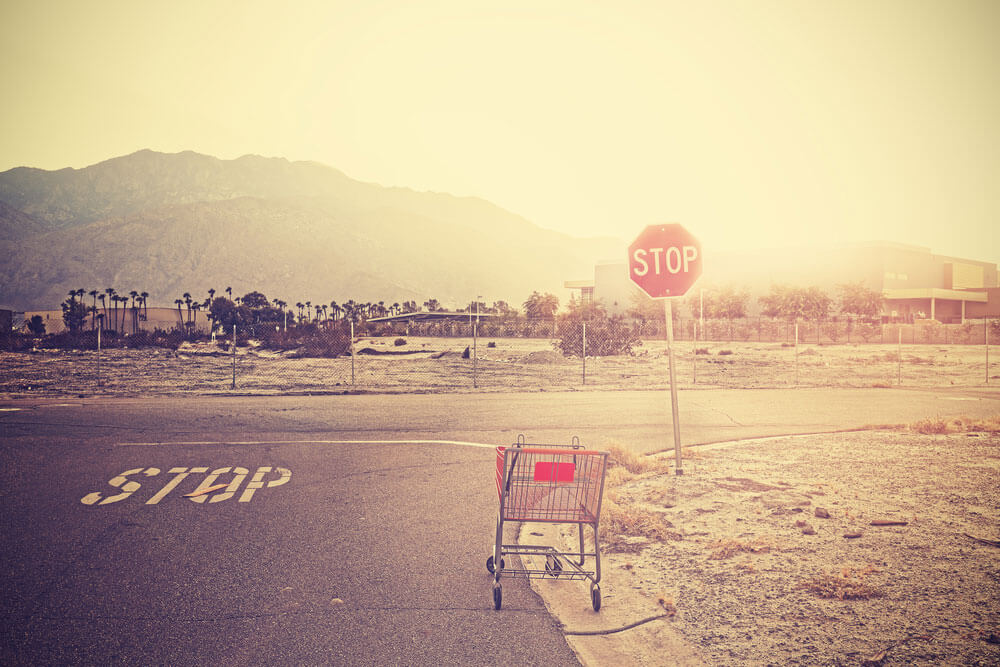If you live in a city or anywhere near a grocery or retail store, you’re bound to come across a stray shopping cart or two every now and again. You might wonder how some of these carts end up where they do — in rivers, next to train tracks, underneath overpasses, etc. The truth is, each year approximately 2 million shopping carts get stolen from businesses, according to The Food Marketing Institute, costing the average store about $8,000-$10,000 annually. In addition to having their shopping carts stolen, businesses must also face the reality that their carts will wear down over time, rendering them useless or even hazardous.
Whether due to theft or deterioration, retailers and grocers will eventually need to invest in new shopping carts if they wish to continue operating successfully. However, something must be done about all of those old carts before bringing in a brand new fleet. Many towns are already littered with stolen, busted up, and/or outdated carts, so the proper disposal of these materials is crucial for preserving communities and the environment. Let’s discuss the various ways businesses might dispose of old shopping carts after ordering new ones to replace them.
What to Do With Old Shopping Carts
It’s Conditional
As mentioned above, there are many reasons for a business to order new shopping carts — perhaps you’re rebranding and your current carts no longer reflect your identity; or, maybe your supply of carts is dwindling and you would rather invest in an entirely new fleet than hang on to the few remaining stragglers on hand. Whatever the case, what you end up doing with your previous carts is largely dependent on their condition. After all, if several of your old carts are still functional, it doesn’t make much sense to simply chuck them in a landfill. On the other hand, if a cart is truly in a state of disrepair, the most prudent option might be to scrap it. There might be significant variation between your old carts, too. It’s often worth separating the serviceable carts from the clunkers and handling them differently.
If They’re in Good Shape, Sell Them
As for the old carts in your collection that still look and work just fine, you might consider putting them up for sale. Smaller stores in need of additional carts might be looking to buy shopping carts that have been previously used in order to save some money. Additionally, multi-location businesses might have a transfer system set up where one store can essentially trade in its older stock to another store within the company for some monetary value or asset exchange, etc. This situation is often ideal because it allows businesses to retain a steady supply of functional carts without needing to invest in a new fleet for each and every location.
Broken Carts Can Get Scrapped
Those carts of yours that have outlived their usefulness cannot and should not be sold to another store or transferred within the company. Still, something has to be done with these damaged vessels. Fortunately, there are several individuals and entities that purchase or otherwise accept defective items in order to break them down into their components — these scrap materials can then be used to create new items or are simply auctioned off.
Looking for new custom shopping carts and baskets for your business?
Get started with a free quote today!
Get a QuoteScrap Yard Regulations and Considerations
Scrapping otherwise useless carts can be a practical and responsible way to dispose of your old fleet. However, there are certain caveats when it comes to bringing broken carts to a scrap yard. Because so many carts are stolen every year, many scrap yards won’t bother accepting shopping carts, fearing potential legal repercussions. For this reason, businesses and individuals who wish to sell their old carts for parts must typically offer some proof of ownership, such as a receipt or some other paper trail, as carts are considered “restricted metals.” Different regions have different laws surrounding this issue, so it’s worth doing your homework and making some calls before deciding to go this route.
When in Doubt, Donate Them
In certain scenarios, trying to find parties interested in purchasing your old carts (either as they are or for scraps) is more trouble than it’s worth. If you simply want and need to get rid of your old stock of carts, you might think about giving them away instead. You might be surprised at how many people would be happy to take even a busted up cart off your hands, including industrial artists who use metal and other scrap material to build sculptures. Of course, donating your old carts is often easier said than done — again, certain legal restrictions will likely apply. After all, cities and towns won’t want to see any more carts flung about public places, and giving away old carts might result in further littering.
Let the Local Government Handle It
If all else fails, local government entities might eventually oversee the disposal of your old shopping carts. Unfortunately, this usually means that the old fleet ends up in a landfill, which isn’t great for the environment. Ideally, you want to ensure that your old carts get recycled and reused in some way. One of the best ways to ensure this outcome is by buying shopping carts that are made from 100% recyclable materials, which is exactly what Good L Corp. offers. Good L Corporation delivers innovative shopping cart and basket solutions for retailers on a global scale. From a fleet of new custom carts to launch your store opening, to replacement baskets that supplement your existing shop supply, Good L Corp can configure the right carryall strategy to boost your retail business. Let’s get started! Contact us today for a no-pressure sales quote.


Request a Quote
Get a boost to your impulse sales which ultimately leads to an overall improvement of your total sales. Don’t you want to increase sales? Of course you do!